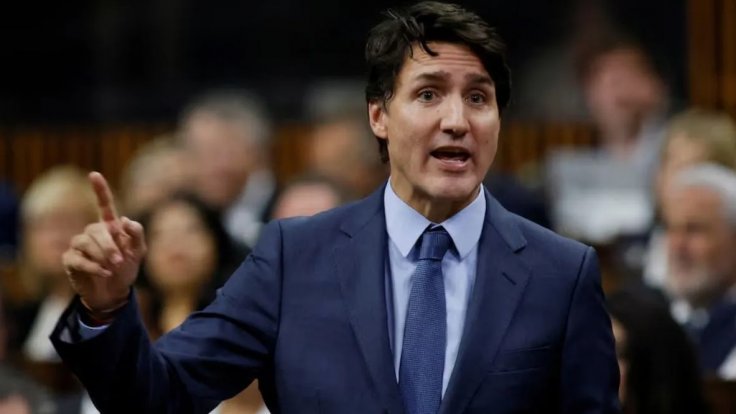Canadian Prime Minister Justin Trudeau is expected to resign from office this week, according to reports. According to the Globe and Mail, a Canadian news outlet, three sources confirmed on Sunday that the 53-year-old leader may announce his resignation as head of the Liberal Party ahead of a crucial national caucus meeting scheduled for Wednesday.
The exact day Trudeau might announce his resignation still remains unclear, though sources suggested it could happen as early as Monday. A source familiar with Trudeau's plans told The Globe that he understands the importance of addressing the matter before meeting with the Liberal caucus to avoid any perception that the party pushed him out.
Moving Out as Party No Longer Wants Him

According to insiders, Trudeau has come to terms with the fact that the party no longer supports him, leaving him with no viable path to remain in his role. It is still uncertain how the Liberal Party's national executives plan to proceed with selecting Trudeau's replacement as prime minister or whether he will remain in office until a new leader is chosen.
The national executive, responsible for handling leadership matters, is scheduled to convene later this week to address the situation.
The explosive report comes as Trudeau, under mounting pressure, faces growing demands to step down. Adding to the challenges is the looming prospect of Donald Trump's presidency and the potential imposition of 25 percent tariffs on all goods from Canada.
His decision to resign comes amid widespread backlash over Chrystia Freeland's unexpected resignation as finance minister and deputy prime minister on December 16, the very day she was set to present her economic and fiscal update.
Chrystia Freeland cited her concerns over what she described as Trudeau's "spending gimmicks" when announcing her resignation.
She also highlighted disagreements with Trudeau regarding government spending and "the best path forward for Canada" amid rising inflation and the high cost of living, according to the BBC.
No Choice for Trudeau

In the wake of Freeland's departure, Trudeau remained largely silent and instead made a public visit to Trump's Mar-a-Lago estate. This move exacerbated the crisis, as Trump mocked Trudeau and suggested Canada could become a U.S. state.
Facing mounting pressure to step down, Trudeau eventually announced plans for a crackdown on immigration, adopting measures reminiscent of Trump's policies.
On Tuesday, Canada's new Finance Minister, Dominic LeBlanc, unveiled a $1.3 billion CAD ($930 million USD) package aimed at strengthening border security and curbing illegal drugs and irregular migration.
The measures include round-the-clock border surveillance using helicopters, drones, and mobile towers, as well as advanced detection tools to intercept illicit drugs. According to TNC, the legislation focuses on five key areas: reducing fentanyl trafficking, enhancing border patrol coordination, providing law enforcement with new resources, improving inter-departmental information sharing, and slowing unauthorized migrant crossings.
One potential contender to succeed Trudeau is 59-year-old investment banker Mark Carney, who reportedly spent much of the holiday season in discussions with Liberal MPs, seeking their guidance and backing for a bid to lead the Liberal Party, according to Global News.
Meanwhile, The Globe and Mail reports that Trudeau has also held discussions with Dominic LeBlanc to gauge his willingness to serve as interim leader and prime minister, according to an insider.









